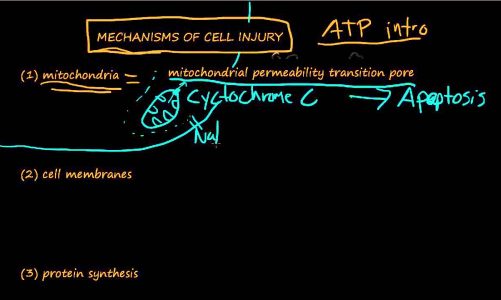Do you often wake up tired or experience fatigue on multiple days of the week? You are not alone! According to a poll conducted by YouGov.com, 38% of Americans reported feeling poorly rested at least 4 days out of the week and fatigue, as a chief complaint, accounts for 10-20% of all consultations in primary care settings.
Fatigue is a word that resonates with millions worldwide, describing a state of constant tiredness that goes beyond the typical weariness we all experience. But what if there’s more to this exhaustion than meets the eye? Enter mitochondria, the microscopic powerhouses within our cells that play a pivotal role in energy production.
The Mitochondrial Powerhouses
Mitochondria are like the energy factories of our bodies, tirelessly working to generate adenosine triphosphate (ATP), a molecule that fuels nearly every cellular process. They’re more than just energy producers, though. Mitochondria are also involved in regulating cell growth, signaling, and even cell death. Their intricate functions make them essential to our overall health and vitality.
The Fatigue Conundrum
Fatigue is a complex symptom experienced by people with various medical conditions, including chronic fatigue syndrome (CFS), fibromyalgia, and various autoimmune disorders. While the exact causes of fatigue can be multifaceted, current research is increasingly turning their attention to the role of mitochondrial dysfunction as a contributing factor. When mitochondria are functioning well, people are less likely to experience symptoms common to mitochondrial dysfunction such as fatigue, brain fog, and pain.
Mitochondrial Dysfunction and Fatigue:
- 1. Energy Shortage: Imagine mitochondria as mini-furnaces, burning fuel to produce ATP. When these furnaces misfire due to mitochondrial dysfunction, ATP production decreases, leading to a reduced energy supply for the body’s tasks. This energy shortfall is one of the key factors behind fatigue.
- 2. Oxidative Stress: Mitochondria produce energy but also generate reactive oxygen species (ROS) as byproducts. In healthy cells, these ROS are neutralized, but mitochondrial dysfunction can lead to an excess of ROS, causing oxidative stress. This stress damages cellular components and contributes to fatigue.
- 3. Inflammation: Mitochondria are intertwined with the body’s inflammatory responses. Dysfunction can lead to chronic inflammation, and inflammation, in turn, can further impair mitochondrial function. This vicious cycle could contribute to persistent fatigue.
- 4. Cellular Signaling: Mitochondria are vital for cell signaling and communication. Dysfunctional mitochondria can disrupt these signals, potentially leading to imbalances in various systems, including those responsible for energy production. Read more about how cellular health is the key to healthy aging here.
Research suggests that nutrition, physical activity, sleep, and other lifestyle strategies can be game changers in supporting the health of our mitochondria. Functional medicine is uniquely positioned to help patients suffering with fatigue understand its root causes and establish helpful lifestyle changes to address mental and physical exhaustion.
Tips for Addressing Mitochondrial Dysfunction to Combat Fatigue:
- Nutrition: Consume a balanced diet rich in antioxidants, healthy fats, vitamins, and minerals to provide the building blocks for optimal mitochondrial function. Aim to keep your carbohydrate intake on the lower side so mitochondria can burn fat (instead of carbs) to create ATP needed for energy production. Embrace foods like leafy greens, berries, nuts and seeds, lean proteins, and EVOO to support mitochondrial function. Try time restricted eating or intermittent fasting to promote the body’s cellular recycling system and promote anti-aging pathways.
- Exercise: Regular physical activity can stimulate the growth of new mitochondria and enhance their efficiency. Want the most bang for your buck? Try high-intensity interval training (HIIT) to boost mitochondrial production.
- Supplements: Some supplements, such as Nicotinamide Mononucleotide (NMN), Coenzyme Q10 (CoQ10), alpha-lipoic acid, N-acetyl Cysteine/Glutathione, L-carnitine, B vitamins, Magnesium, Omega-3 fatty acids, and Vitamin C are some of my favorite nutrients to support mitochondrial health.
- Stress Management: Chronic stress contributes to mitochondrial dysfunction. Engage in stress-reducing activities like meditation, deep breathing, and mindfulness to support mitochondrial health and reduce oxidative stress.
- Sleep Hygiene: Prioritize quality sleep, as it is essential for cellular repair and mitochondrial function. Maintain a regular sleep schedule and create a conducive sleep environment.
- Cold Exposure: Brrr – although this is not for everyone, if you are willing to expose yourself to quick bursts of cold temperatures (whether in the shower, cold plunge, or the outdoors) this can trigger new mitochondrial production and may be beneficial for longevity.
The interplay between fatigue and mitochondrial dysfunction opens a new realm of understanding in the pursuit of improved well-being. While research is ongoing, acknowledging the potential impact of these microscopic powerhouses on our energy levels provides hope for those battling chronic fatigue. By adopting lifestyle changes that promote optimal mitochondrial function – from nutrition and exercise to stress management – we can take proactive steps toward revitalizing our energy levels and embarking on a path toward renewed vitality. Remember, every small change can bring us one step closer to breaking free from the chains of fatigue and embracing a more energetic, vibrant life.

